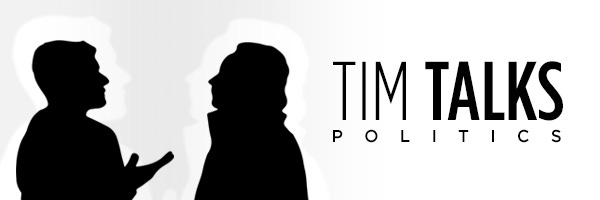Tim Talks Politics - The Weekly Brief, April 27, 2018

The Weekly Brief - April 27, 2018
Trump and Euro diplomacy
While anticipation builds for the slew of Korea-related summits, the American president had his hands full this week with two visits from European heads of state. French president Emmanuel Macron visited Washington for several days and German Chancellor Angela Merkel is in Washington today to meet with President Trump.
The two European heavyweights clearly have business to conduct with America. Brookings reports that it is Germany that is in the more difficult position vis a vis America and Der Spiegel criticizes the Merkel government for presiding over a shrinking international role for Germany. The mixed feelings about the German-US relationship extend to the American and German people as Pew Research unpacks cognitive dissonance in the relationship.
French-US relations, on the other hand, seem to be on the upswing. After a successful joint effort in Syria, Macron is feeling bully about his ability to work with and influence Donald Trump. The Carnegie Endowment for International Peace notes that Macaron’s visit was very much focused on pushing Trump on the upcoming deadline for renewing the Iran agreement.
Brookings notes that the two leaders are building a working relationship that stands in marked contrast to the German standoffishness. Macron’s newly-found pragmatism in relationship to Trump comes at a pivotal moment in what may well be a month that determines the tone of US-European relations for quite some time both with the Iran deal and with trade.
Who are we going to war with next? Likely nobody
Despite the difficulties, our partners in Europe are definitely needed in the evolving strategic landscape around the world. Hoover Institute researchers took to using the word “brink” to describe America's relations with countries posing security problems in the Central Asian region: Iran and Pakistan.
Meanwhile, the ever-present and growing Chinese militarization of the Indo-Pacific has led some to conclude that they already can control the South China Sea. However, the idea of going to war with anyone anytime soon should probably be taken with a grain of salt. Americans are tired of war and Congressional work to update the AUMF points to renewed interest in limiting military deployments.
American democracy gets a hold of itself
After several weeks where I shared stories of writers and leaders expressing skepticism at the future of American democracy, some good news! Pew Research has found that while many Americans think that America's democracy needs some significant structural changes to their institutions, by and large, the great majority of Americans still think democracy is doing just fine in the United States. Even better, many believed that government is functioning well at the local level even if it seems too dysfunctional at the national level.
That kind of optimism is echoed by the Atlantic and is represented in the economic data as AEI reports the 14 states now show historic levels of low unemployment. Of course, this isn't to say that problems are not present or that they have moved to the background. Even as Millennials are poised to become the largest demographic group in America next year they're still facing some strong economic headwinds particularly in some of the highest priced urban housing markets.
Additionally, conservatives still need to work on figuring out how to deal with the split between moderate and populist wings in the Republican Party. The division within the party may have contributed to a narrow special election victory in Arizona. The narrow Republican win left some optimistic that the Blue Wave building for the midterms remains on track, but the jury is still out on that one.
Venezuela: The other humanitarian crisis
The ongoing humanitarian crisis in Venezuela has fallen off the media radar for several months now mostly because nothing is changing, which is to say it's only getting worse. Americas Quarterly provides a brief update on some of the humanitarian emergencies facing the country as well as a who's who profile piece on major opposition members.
Brookings provides insight into the refugee crisis on the Venezuela-Colombia border.



